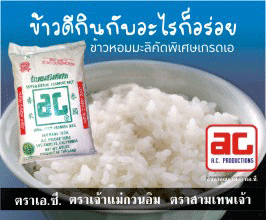2 YEAR CONDITIONAL GREEN CARDS – REMOVING CONDITIONS EVEN IF YOU ARE NO LONGER MARRIED!
In this week’s article, I will be revisiting a misconception concerning the 2 year conditional green card. Contrary to popular belief, you CAN remove conditions on your green card and extend it for another 10 years, EVEN IF you went through a divorce prior to filing the petition with Immigration. This is an old email question that was sent to me from Khun “Thap” from San Diego, CA:
Q: “Dear Attorney Joseph. I have an immigration problem and I don’t know what to do. I have a 2 year green card that will be expiring in a few months. I know I have to renew this before it expires but the problem is that I recently got a divorce. My ex-wife and I just couldn’t get along anymore. My friends all tell me that I have no option now. That I have to give up my green card and move back to Thailand! I don’t want to do this because I have established myself here already. Can you help me? I am so stressed about this. Could I come see you at the office? Please, any suggestion would help. Thank you.” (Khun “Thap”; San Diego, CA)
A: Yes, I can help you! Many people (even some attorney’s too btw!) think that if you have a 2-year green card, and you get divorced prior to the expiration of this green card, you cannot renew/extend your green card, and must leave the United States. This is not true and a misunderstanding of the law.
The 2-Year “Conditional” Green Card Based on Marriage
A “conditional” green card is lawful residency status that is issued with a 2 year expiration. This type of green card is issued if you were married less than two years when your lawful permanent residency status was granted. Prior to the 2 year anniversary of this green card, you are required to petition for removal of this condition. In general, to convert the conditional green card into a 10 year green card, the U.S. citizen/sponsoring spouse and the conditional green card-holding spouse must petition to have the conditions removed within 3 months before the card expires. Failure to do this will result in the expiration of the green card and termination of lawful permanent residency status.
Divorced and No Longer Married – Waiver of the Joint Filing Requirement
Although the petition you submit to immigration in order to remove conditions on your 2-year green card is consider a “joint” petition (meaning, together with your spouse), there is a way to file without your spouse. It’s called a request to waive the joint filing requirement and I have successfully done this for many clients who were married in good faith, but subsequently divorced. However, each case is different so please contact me so that I can better advise you regarding your particular case. (To read a letter I received from a client regarding this exact misconception, please visit my website at www.JC4LAW.com)
As I covered on my website at WWW.JC4LAW.COM and on my Facebook page at WWW.FACEBOOK.COM/ThaiAttorney, you can get a divorce or be divorced, even if you received your green card through this marriage and still file to extend your lawful permanent residency. There is no law that restricts a person’s freedom to get divorced. Just as you are, for the most part, free to marry anyone you wish, there is no law against getting a divorce.
As always, if you have any questions still left unanswered or you have general questions regarding other legal issues, or even if you have comments, please contact me:
********NOTICE: NEW CONTACT INFORMATION********
Email: JC4LAW@HOTMAIL.COM or call/text me at: (818) 505-4921.
Also be sure to check us out on the web at: WWW.JC4LAW.COM, and on FACEBOOK at: https://www.facebook.com/ThaiAttorney Be sure to follow (and "like") me for the most recent updates in the law! For those of you who are in Thailand or outside of the United States, my LINE ID is: JC_Esq For my YouTube Videos, search "Joseph Chitmongran", or check my FACEBOOK for Links.
Disclaimer: The information contained herein have been prepared for informational purposes only and are not to be considered legal advice unless otherwise specified. If you have a specific question regarding your personal case, please contact the Law Offices of Joseph Chitmongran for a full consultation.


































